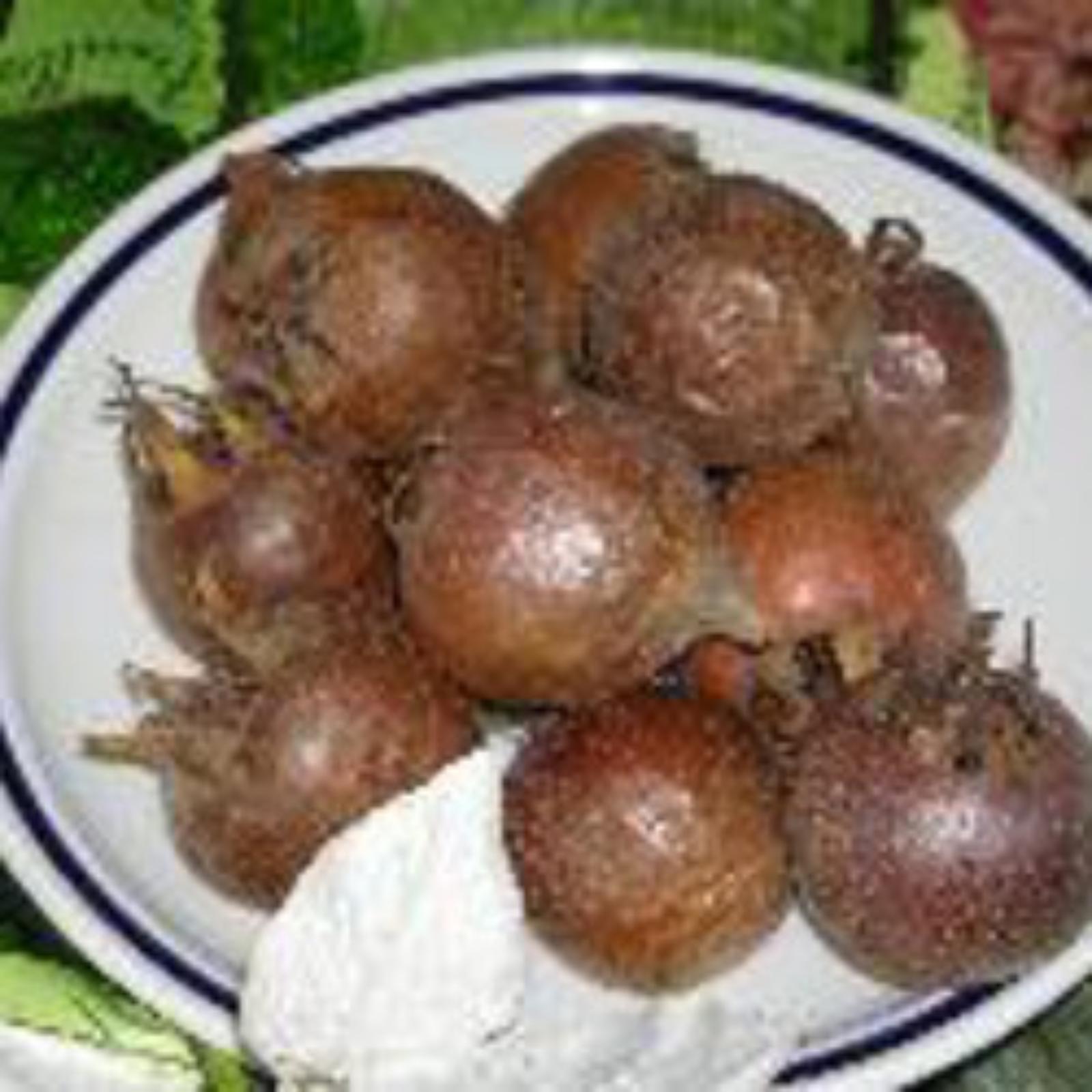The fruit of a local variety of medlar tree: the common medlar, known by the scientific name of Mespilus germanica. It is the fruit of a large shrub or small tree. Despite its Latin name, which means German or Germanic medlar, the nespola is indigenous to southeastern Europe.
The fruit comes from trees cultivated in Molinella or from trees reproduced from these plants.
To be edible, the fruit must be fully matured with rust-coloured peel and pulp of intense light rust colour. The whole fruit (healthy, free from rot, parasites, dents and moisture) must not contain strange flavours or smells.
The plants are very hardy. The fertile soils of the entire territory of Molinella are perfectly suited to it and don't require fertilization or irrigation, except in the case of particularly dry years (in this case it is needed water rescue). In the Molinella habitat the medlar generally doesn't require any pesticide.
The harvest of medlars is performed in the second week of November with the fruit perfectly dry to prevent mold growth at the point of detachment of the stem during storage. After harvesting the fruits should be stored in cool and airy boxes, under a layer of straw 10-12 cm, awaiting maturation that starts after three to four weeks.
The De.C.O. (Denominazione Comunale di Origine, that is to say municipal denomination of origin) is a “typicalness certification” by the municipality for agroindustrial products which are not otherwise protected. This brand is a way to link a product to his homeland, the place where it has always produced. So agroindustrial products can only be labelled as such if they come from Molinella territory and comply with the necessary preparation, marketing and sale formalities as well as the characteristics as provided in the Production regulation issued by the Molinella town council.
A company authorized to market the product under the De.CO brand is:
- Mario Berardi - via Fiume vecchio 278/1 - Marmorta di Molinella (BO)
Interests
- Food & Wine

